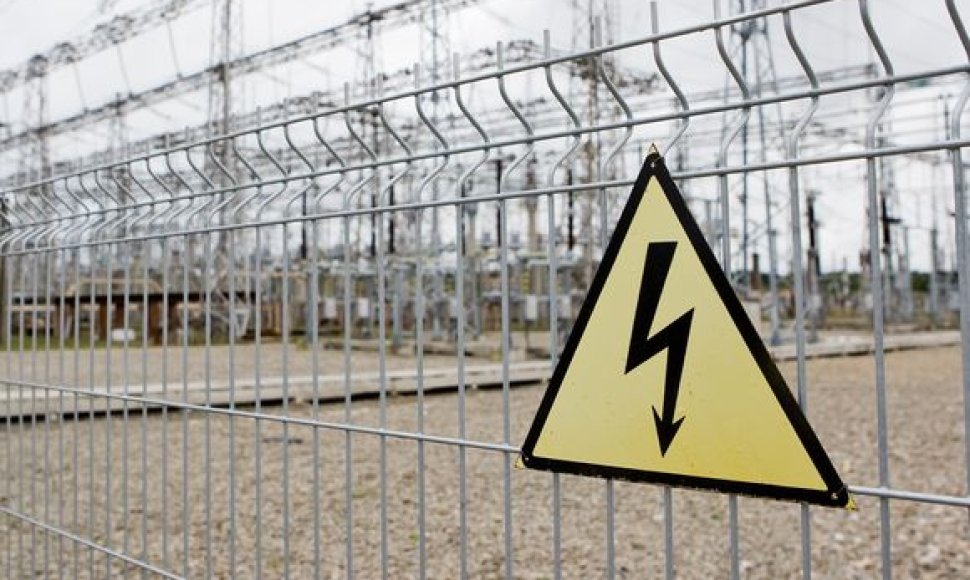 |
| Ambasados nuotr./Lithuania's special ambassador Dainius Petras Kamaitis |
As Dainius Petras Kamaitis, Lithuania's special ambassador with the Economic Security Policy Department of the Ministry of Foreign Affairs, the problem with Belarus' project is that prep work has been going for three years now, while necessary safety assessment has not been properly concluded. In response to what Lithuanian diplomats regard as Belarus' blatant refusal to cooperate, Lithuania filed a complaint with the United Nations Economic Commission for Europe. Last week, 20-21 March, delegations of the two countries were summoned to Geneva, where the Commission is headquartered, to attend the hearing of Lithuania's case.
How it must be done
According to the Convention on Environmental Impact Assessment in a Transboundary Context, or Espoo Convention that was signed in 1991, a state that pursuing a project with potentially transnational environmental effects must follow a certain procedure in assessing the project's environmental impact and informing other concerned parties - neighboring states - about all the details as well as answering all questions the latter may have.
According to Dainius Petras Kamaitis, special ambassador who headed Lithuania's delegation in Geneva, Lithuania still has a lot of unanswered questions about Belarus' project to build a nuclear power plant in Astraviec.
"Firstly," he says, "no seismic analysis has been carried out, despite the fact that, about a hundred years ago, the site was struck by an earthquake." Secondly, Lithuania has not seen a satisfactory assessment of the plant's environmental impact.
"It is not clear at all what ecological effects this will bring upon the river Neris," Kamaitis continues. Waters from Lithuania's second-longest river that flows past two of its major cities (Vilnius and Kaunas) are to be used for cooling the reactors, according to the project.
Finally, the greatest focus of concern for Lithuania is Belarus' choice of site for the nuclear plant. Astraviec lies on the border with Lithuania and only about 50 kilometers away from the capital city Vilnius - a "menacing distance," according to Kamaitis.
"There has been no assessment of the radiation effect for people in the region," he continues. "If, say, a Fukushima-like accident happened there, we would have to evacuate our entire capital city, including all its residents and state institutions. That would be unthinkable."
In fact, Belarus' choice of location for the nuclear site is more than curious, according to the ambassador. According to Espoo Convention, a country that wants to build a nuclear plant must consider at least several possible sites and carry out environmental impact assessments in each of them (sharing the results with interested neighbor states). "Belarus only analyzed this one site in Astraviec and none others," Kamaitis says. "It is clear that this site had been given priority even before any environmental impact analysis was carried out, which is in direct violation of Espoo Convention. Only once you've studied several sites and determined the most suitable one, can you make the choice, and not vice-versa."
In addition to these concerns, there are several technical issues that raise doubts about the safety of the project. Firstly, according to Kamaitis, Belarus has no nuclear experience. "Unlike Lithuania, up until now Belarus has never had a nuclear power plant. As a result, there are no regulating bodies to ensure safe organization and operation of the process. There is no action plan in case of an accident or something going wrong."
Financing of the project, too, seems shaky. "Without help from abroad, Belarus alone would not be able to build it," Kamaitis says, adding that even though the country signed a financing agreement with Russia, it is still unclear when and how Russians are going to provide the money.
How it was done
With so many unanswered questions - and, according to ambassador Kamaitis, having fruitlessly tried all bilateral channels to get them answered - Lithuania filed a complaint with the Geneva-based Implementation Committee of Espoo Convention last June, quoting procedural violations on Belarus' part.
According to the Convention, Belorussians should have first notified Lithuania about their intentions, presented relevant environmental impact assessments, and answered all questions - only then, following the procedure, were they to start designing the project and initiating preparatory works.
"In Belarus' case, unfortunately, everything happened the other way round," Kamaitis says. "They started preparatory works in January 2009 and Lithuania was notified about their intentions more than half a year later, in August. Several weeks after that, we received relevant environmental analysis documents, and only then did we formally launch our own analysis. Having reviewed the documents, we were still missing much crucial information, yet the works had already begun."
So far, these works have included building roads, infrastructure, and residential housing around the future nuclear power plant site in Astraviec. "When the [Espoo Implementation] Committee asked Belorussian representatives, whether these works were in any way related to the nuclear plant, they did not give a definite answer. They went on about the constructions having more to do with regional development and not the plant," Kamaitis says about the hearing in Geneva. "I can't imagine that this could have convinced anyone, as publicly available photos from the construction site clearly show otherwise."
The President of Belarus Alexander Lukashenko signed a decree on 15 September last year, officially launching the project. All media reports, according to Kamaitis, now point towards May 2012 as the date when construction of the plant itself will start.
Lithuania is not the only one that has doubts about the timeline of the project, Kamaitis points out. Last September, Belarus was holding bilateral talks with representatives of the European Commission (EC) in Minsk; the EC, too, had requested information on the future nuclear power plant and it was on that day - two hours prior to Lukashenko's presidential decree - that they were presented with relevant documents.
Therefore, in the European Commission's view, the 15 September 2011 was the date when compulsory bilateral consultations were initiated, a fact that the Lithuanian delegation pointed out in Geneva too. The EC sent a written response to Belarus only this February, raising many of the same points that Lithuania has, according to Kamaitis.
What Belorussians say they did
In Belarus' view, the assessment and consultation procedure required by Espoo Convention is effectively over.
"They maintain that they stuck to the Convention requirements from the beginning, that they carried out all environmental assessments and answered all questions that were raised - including by Lithuania - and everyone is satisfied, except Lithuania that keeps making a fuss about it," Kamaitis says.
According to him, during the Committee hearings in Geneva, Belarus launched a veritable "lying campaign" that "does not help work towards an effective dialogue between the two neighboring states."
"A straightforward lying campaign is being forced, even in connection to the choice of location," Kamaitis regrets. "Belorussians claim that the IAEA (International Atomic Energy Agency) itself has approved the site [in Astraviec]. There have been reports that its Director General is coming to Belarus. They spin it like this: the IAEA has always supported the project and the visit by its head is one more proof that everything is in order. Facts, however, point to the contrary."
Another strategy employed by the Belorussian delegation in Geneva, Kamaitis says, was bouncing back Lithuania's questions, reformulating them in connection to a new nuclear power plant that Lithuania is planning to build in Visaginas.
The Visaginas Nuclear Power Plant is a project that Lithuania - in cooperation with Latvia, Estonia, and a Japanese company Hitachi - plans to start by 2014. It, too, is projected to be located near the Lithuanian-Belorussian border, the justification for it being that this is where Lithuania's old Ignalina Nuclear Power Plant used to be located, providing the necessary infrastructure.
"The environmental impact assessment procedures for Visaginas Nuclear Power Plant was officially concluded in 2009," ambassador Kamaitis assures. "Lithuania carried out the analysis, invited neighboring countries to participate. Belarus did participate, put forward questions that our side answered, receiving assurances that Belarus had no more questions.
In Kamaitis view, Belarus was re-opening the Visaginas Plant issue merely to deflect questions directed at their project. "During the Committee hearing, the Belarus side said, look, what we're doing is nothing compared to Lithuanians, who are building a plant two kilometers from the border, and we are concerned," he recalls. "The Committee did not react to such pleas, since the issue [of Visaginas Nuclear Power Plant] was not on the agenda. They paid little attention to such emotions."
What Lithuania wants
Having heard both sides, the Implementation Committee should present its conclusions in about a month, according to Kamaitis. If it decides that Belarus has indeed defied Espoo Convention, the Committee will present its recommendations. "It is hard to tell how strict the wording might be," Kamaitis says, adding that it is the first time Lithuania engages in similar proceedings. "I think that the conclusion might come in the form of strict recommendations, going as far as requesting to halt the construction until the environmental impact analysis is properly finished."
Does Lithuania aim at stopping the project altogether? "Speaking objectively, we do not have the means to block the nuclear power plant project," Kamaitis admits. "Our primary goal is to make sure that the preliminary assessment - seismic analysis, impact for the environment and people - are done according to Espoo convention. Our further actions will depend on the results. If it turns out that the project is indeed dangerous, then we'll at least try to get it relocated."
In the end, however, it all comes down to Belarus' benevolence. "The Committee will present recommendations, but whether it works in practice - that's another questions," Kamaitis says. "Will Belarus be reasonable - that seems doubtful, bearing in mind the recent lack of goodwill on its part."
The choice to build the plant so close to the Lithuanian capital and involvement of Russian money naturally give rise to speculations as to what is the point of the project. "We see it unambiguously, as a project based on calculations that are not economic, but rather political," according to Kamaitis.
Coupled with Belarus' plans is another recent announcement from Russia that it plans building a nuclear power plant in Kaliningrad, on the other side of Lithuania.
"Speaking of Kaliningrad [nuclear power plant], it makes no sense, Kaliningrad does not need that much power," Kamaitis speculates. "Russians say they will be exporting electricity to the West. But their power grid has no connections to the West. […] As for Belorussians, they have plenty of other power sources. The new plant can, of course, come in handy, but it is hardly a project of primary importance. As the country does not have enough money in its own coffers and chooses to build it so close to Vilnius - one naturally starts to wonder what is behind all this."
What it smells of is, of course, good old Eastern imperialism. "Even though Lithuania is now part of the European Union, it is not in the EU in terms of energy. Our power grid is still part of the old Eastern system," Kamaitis says.
To tackle this dependency, Lithuania is currently pursuing a number of energy projects, including building a new nuclear power plant in Visaginas and connecting its power grid to Poland and Sweden.
"Looking back, while Ignalina Nuclear Power Plant was still operational, Lithuania was securely a power-exporting country," ambassador Kamaitis reminds. "When the plant was shut down in 2009, it all changed and now we must import 80 percent of our electricity from abroad. We all know how it turned out - electricity bills for ordinary consumers skyrocketed.
"Moreover," he continues, "being dependent on one supplier is a big problem. In general, if a country must rely on another single country for more than 15 percent of its power, the situation is regarded as highly insecure. Lithuania, meanwhile, imports 80 percent of its electricity and the entire 100 percent of its gas. The situation is unenviable."












